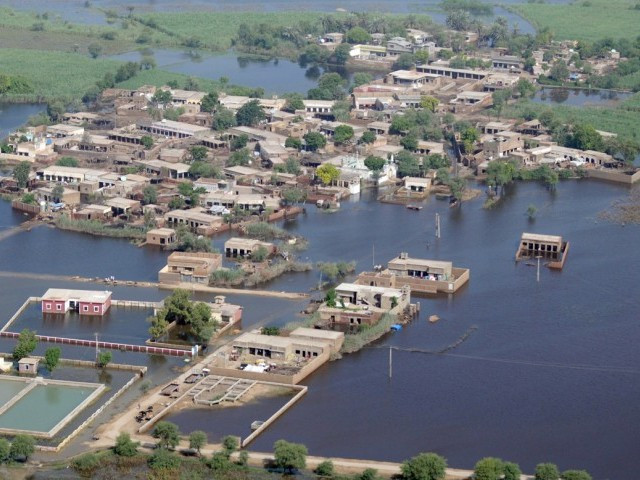Post-disaster relief: First-ever insurance plan on the drawing board
Aims to cover loss of life and livelihoods.

The country is working on a plan to provide disaster-risk insurance for its 180 million people to cover the loss of human lives, livelihoods shelter and livestock, which is the biggest ever insurance venture anywhere in the world.
National Disaster Management Authority (NDMA) Chairman Dr Zafar Qadir announced this at a consultation on “Climate Change Policy and Pre-Monsoon Institutional Response” on Wednesday, according to a press release.
Dr Qadir said changing monsoon patterns and increased frequency of disasters are posing new threats and challenges. “In 2011, civilian institutions led disaster-response operations, which were traditionally organised by the army, for the first time in the country.”
For the first time, elaborate contingency plans have been developed by NDMA at district, provincial and national level with consultation from all stakeholders, he added.
The NDMA chief also shared measures for disaster mitigation that include inclusion of disaster preparedness education in school curricula, gender mainstreaming in preparedness plans and training and capacity-building of disaster response institutions.
Strengthening Participatory Organisation (SPO) Chief Executive Naseer Memon was of the view that the National Climate Change Policy (NCCP) 2011, would be ineffective without integrated institutional efforts.
“Pakistan needs to adopt an approach of climatically-appropriate development planning,” he said. “Nationwide disaster-mapping, risk-reduction planning and effective response mechanisms are immediately required to mitigate damage in catastrophes.”
Earlier Hammad Raza Khan, a consultant with SPO, who presented a review paper on NCCP, said the policy provides a baseline framework to address climate change-related issues in the country. NCCP covers diverse subjects which have now devolved to the provinces, such as agriculture, health, forestry and the environment.
Giving a critical overview, he said some of the recommendations proposed in the policy lack scientific scrutiny while others were unnecessary or contradictory.
He said the NCCP has a dysfunctional policy implementation mechanism which means it is most likely to fail. Keeping in view the economic situation of the country, some of the recommendations are likely to have serious financial implications, he added.
In the session on “Institutional Response to Pre-monsoon,” NDMA and provincial disaster management bodies shared preparedness plans for monsoon.
The event was jointly organised by Sustainable Development Policy Institute, SPO in collaboration with United Nations’ Economic and Social Commission for Asia and the Pacific and NDMA.
Published in The Express Tribune, July 26th, 2012.



















COMMENTS
Comments are moderated and generally will be posted if they are on-topic and not abusive.
For more information, please see our Comments FAQ